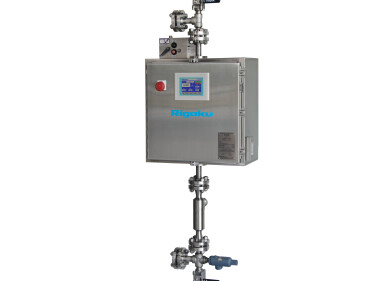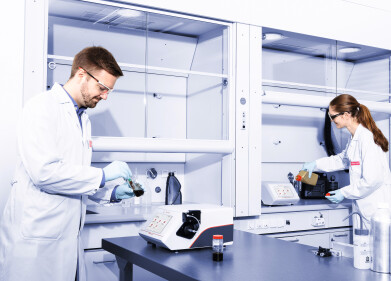Measurement and Testing
5 Benefits of Petroleum Testing
Aug 25 2022
Petroleum testing offers detailed insight into the unique properties of crude oil and other petroleum-based products. Below, we take a closer look at some of the key benefits of petroleum testing and why methods such as the ASTM D5185 and ASTM D93 are so valuable.
-
Maximising yield
Profiling crude oil helps inform and educate decision makers when selecting feedstocks for refineries. This is important as concentrations of elements such as sulphur, nitrogen and oxygen can have a big impact on yield and profits. Petroleum testing is also used to calculate concentrations of metals like copper, iron and nickel.
For example, the ASTM D4294-21 is used to calculate concentrations of sulphur in petroleum. This test is useful as many refineries aren’t equipped with the infrastructure to process heavy crude oil with high sulphur content. Testing allows refiners to calculate sulphur concentrations and assess suitability for infrastructure. If the oil is deemed too heavy, it’s sent to refineries with more processing power. Petroleum testing is also used to assess physical characteristics such as density and viscosity, which can also affect yield.
-
Extending the lifespan of equipment
Regularly testing petroleum-based lubricants helps extend the lifespan of heavy duty machinery and equipment. The ASTM D5185-18 Standard Test Method for Multielement Determination of Used and Unused Lubricating Oils and Base Oils uses Inductively Coupled Plasma Atomic Emission Spectrometry (ICP-AES) to detect traces of wear metals, contaminants and additive elements. Early detection allows operators to address issues before they cause significant damage and reduce the lifespan of equipment.
-
Minimising maintenance and repair costs
Petroleum testing is one of the most effective ways to minimise the costs associated with maintenance and repairs. Testing can be used to assess lubricity and detect issues such as contamination and excessive wear at the earliest stages.
-
Improving uptime
From oil refineries and petrochemical plants to food production facilities, petroleum testing helps improve uptime. This is a major concern as unplanned downtime can be extremely costly. The latest research from the Aberdeen Group reveals that unplanned downtime can cost refineries and petrochemical plants up to US$250,000 per hour. More than 40% of all unplanned downtime is caused by equipment failure, making petroleum analysis an important part of most predictive maintenance strategies.
-
Regulating the market
Petroleum testing plays a central role in regulating the market. Around the world, hundreds of ASTM tests are used to carry out quality control and assurance testing. This includes tests to determine characteristics such as sulphur content, API gravity and country of origin.
Petroleum testing is a complex field used across a wide range of industries. Testing is used at every stage of the oil production process, including the upstream, midstream and downstream operations. Testing is also carried out by parties that purchase and use refined oil and petroleum-derived products. Find out more in our complete guide, ‘Petroleum Testing - A Comprehensive Guide’.
Digital Edition
PIN 25.5 Oct/Nov 2024
November 2024
Analytical Instrumentation - Picturing Viscosity – How Can a Viscometer or a Rheometer Benefit You? - Sustainable Grease Formulations: Evaluating Key Performance Parameters and Testing Method...
View all digital editions
Events
Nov 26 2024 Paris, France
Nov 26 2024 Amsterdam, Netherlands
Nov 27 2024 Istanbul, Turkey
Biogas Convention & Trade Fair 2024
Nov 27 2024 Hanover, Germany
Dec 03 2024 Dusseldorf, Germany



















